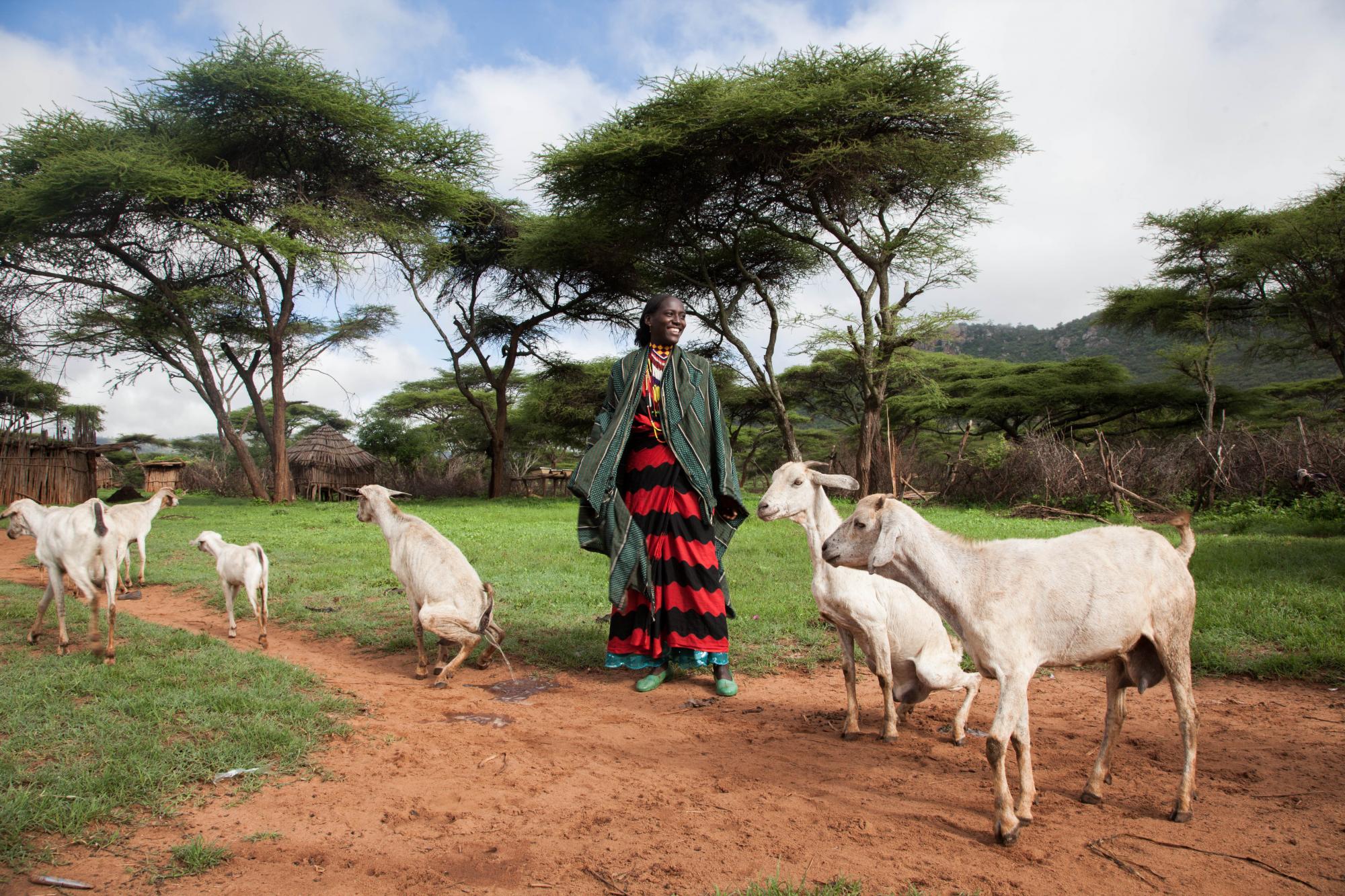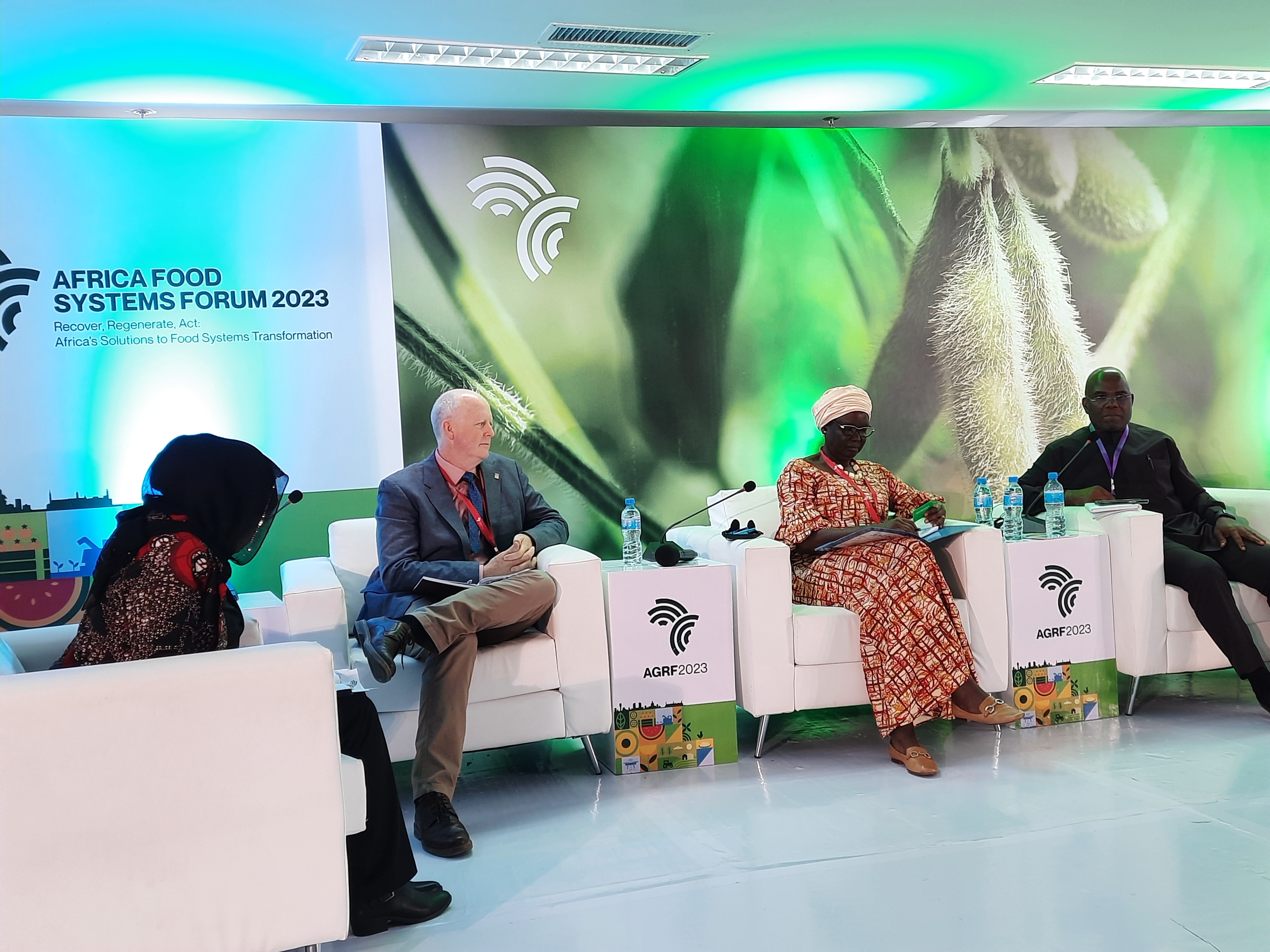
Seven ways to sustainably transform livestock systems in Africa
Core message
For the first time, livestock got a spot on the main stage at Africa’s Food Systems Forum (AGRF) 2023 Summit last month in Dar es Salaam, Tanzania.
Rebranding itself from the African Green Revolution Forum, AGRF shifted its traditional crop-focused agenda to a more comprehensive food systems approach with the theme, ‘Recover, Regenerate, Act: Africa’s Solutions to Food Systems Transformation.’
The livestock sector has always offered solutions for transforming food systems in Africa. Now more than ever, strengthening vibrant local and diverse livestock systems can efficiently produce more nutritious, safe and accessible animal source foods with a reduced environmental footprint, and which are more resilient to shocks and disruptions.
The AGRF session ‘Sustainable livestock and pastoralism’ provided a forum for various stakeholders to engage in dialogue on livestock innovations and food systems pathways for transformation.
Shirley Tarawali, chair of the Global Agenda for Sustainable Livestock and deputy director general at ILRI shared the multisectoral contributions needed to sustainably develop the livestock sector in Africa:
"We need technology but technology alone is not sufficient. We need market and input access and investments in infrastructure. We are embarking on how we can stimulate young people and women as entrepreneurs in this space, which means mentoring, coaching and providing business skills to build vibrant, sustainable business ecosystems. You need to bring all the pieces together. Let's work together in a business environment."
Hon Abdallah Ulega, Minister of Livestock and Fisheries for the United Republic of Tanzania, further emphasised livestock farmers need an enabling environment to reach new technology:
"We have research and technology. For example, scientists have identified more productive breeds. Ten improved cows can exceed 100 cows in terms of dairy production, but who is ready to buy these breeds? We still have a lot of work to do across sectors for scaling up and building capacity for new technology."
1. Collaborating across sectors
Achieving sustainable livestock systems requires a multisectoral approach. Bringing together diverse stakeholders from government agencies, producer organisations, research institutions, development agencies, civil society organizations and the private sector enables collaboration across sectors. Stakeholders must engage in constructive dialogues and work collectively to address the multifaceted challenges facing livestock systems, while engaging with smallholder farmers and pastoralists. Collaborative efforts can leverage the strengths of each sector, leading to holistic, inclusive and innovative solutions that can address livestock challenges from One Health to entrepreneurship.
2. Scaling successful models
Identifying and scaling successful models within the livestock sector is vital for widespread sustainable transformation. Notably, initiatives like genetic selection programs for dairy bulls and mobile applications for livestock management have made monitoring and evaluation within the sector easier. Their impact on existing livestock systems can be amplified by expanding and replicating these models across the continent, and adding capacity building and mentoring. Scaling successful initiatives requires multisectoral collaboration and favourable policies to make new innovations and technologies attract public and private sector investment.
3. Enhancing climate resilience
Embracing innovative solutions is key to enhancing reducing the carbon footprint of livestock systems. Encouraging the uptake of climate-smart technologies and practices among livestock stakeholders can lead to improved productivity, reduced greenhouse gas emissions and enhanced household resilience in the face of climate change. Like scaling, providing training and increasing access to technology will increase sustainable livestock practices and reinforce existing ones.
4. Increasing investment
The livestock sector has often been overlooked when it comes to investment. Unlike large-scale farming systems in the global North, smallholders and pastoralists in the global South can transform food systems and be a climate change solution. Unlocking investments in the livestock sector will enable scaling and uptake of technologies, fund research, empower women and youth, and more. Furthermore, government and private sector investment in infrastructure development will improve access to markets, input supplies, transportation networks, reduce post-harvest losses, improve access to veterinary services and facilitate the distribution of livestock products. Increased investments contribute to more efficient value chains within the livestock sector.
Babafemi Oyewole, chief executive officer at the Pan African Farmers’ Organization, advocated for increased investments to improve farmers’ access to markets.
"Everyone consumes food. The market is already there, but it’s the access to get to the market. We need technology to assist linking people to markets."
5. Influencing policymakers
Effective policies play a pivotal role in shaping the trajectory of livestock systems. Linking research with policymakers is crucial to ensure that regulations and policies are conducive to sustainable practices. Policymakers need to be informed about the benefits of sustainable livestock, including its impact on food security, nutrition and the environment. Effective communication and advocacy efforts from diverse stakeholders can help policymakers understand the importance of supporting initiatives that promote sustainable livestock practices and creating an enabling environment for private sector investment.
Anthony Whitbread, director of the Sustainable Livestock Systems program at ILRI, shared the key factors resulting in the successful adoption of research-backed policies in the sector:
"First, we need good policy with a deep understanding of farming systems, gender, income, policy and promotion. Second, we need to co-design policies through stakeholder engagement. Third, we need to incorporate the priorities of the country, ministries, extension service providers and academic and research institutions. Fourth, we need policy foresight to predict potential outcomes."

6. Empowering women
In the global South, women make up the majority of smallholder farmers. Empowering women, not just at the household level but in all aspects of the livestock sector, is essential for food system transformation. Transforming negative gender norms to provide women with access to financial resources, training and decision-making opportunities will enhance their contributions to the livestock sector. Women's empowerment can lead to improved animal husbandry, increased productivity and the adoption of sustainable practices. Recognising the pivotal role women play in livestock farming and promoting gender-inclusive policies are critical steps toward achieving sustainable livestock systems.
Margaret Munene, CEO of Palmhouse Dairy in Kenya, highlighted the need for women in the livestock sector to gain access to finance.
"Healthy, happy cows produce more, and we need money for inputs. Finance is key and essential for women."
7. Engaging youth in agribusiness
The future of the sector and its ability to be a climate change solution is dependent on the active involvement of young people in agribusiness. Livestock stakeholders must change social norms to encourage youth to view livestock as a viable and attractive career option. Initiatives that support young entrepreneurs in the livestock industry, such as providing mentorship, training and access to resources, can help address the aging demographic of livestock farmers and promote innovation in the sector. Engaging youth in agribusiness not only secures the sector's future but also contributes to economic growth and food security.
Looking ahead
The livestock sector is a key player and needs a seat at the table to engage in discussions on Africa’s food systems transformation. Achieving sustainable livestock systems requires multisectoral collaboration, scaling, climate-smart innovations, increased investment, inclusive policies, and women and youth empowerment to ensure food security, reduce environmental impact and strengthen resilient local livestock systems.
